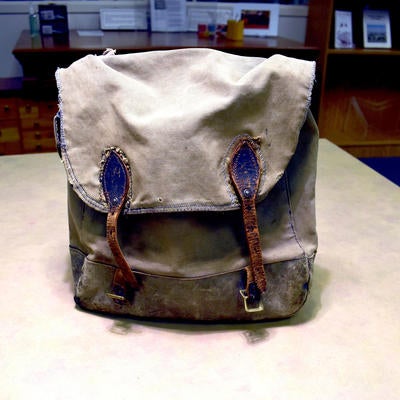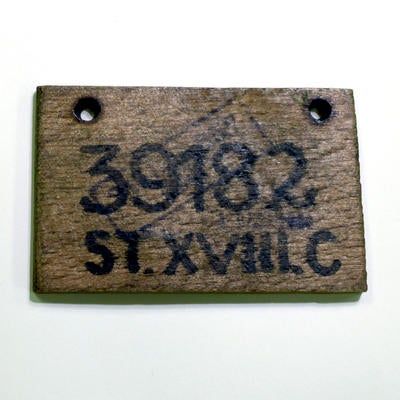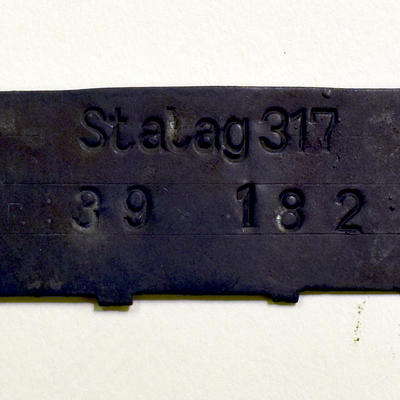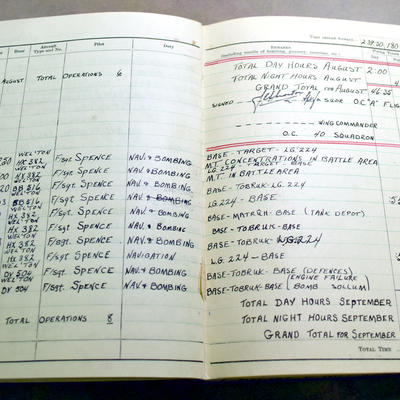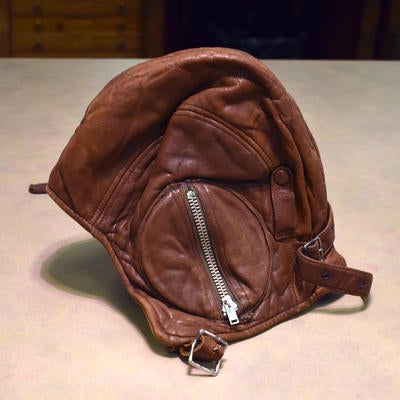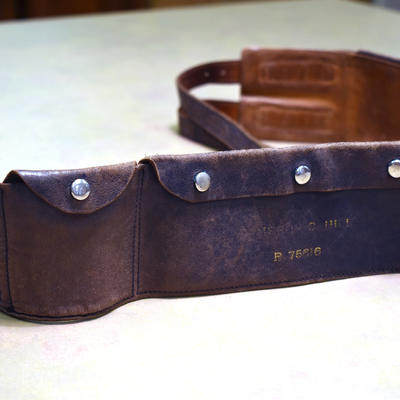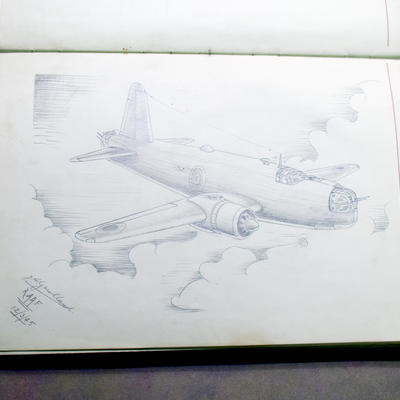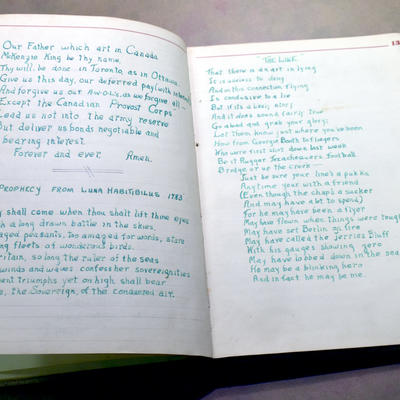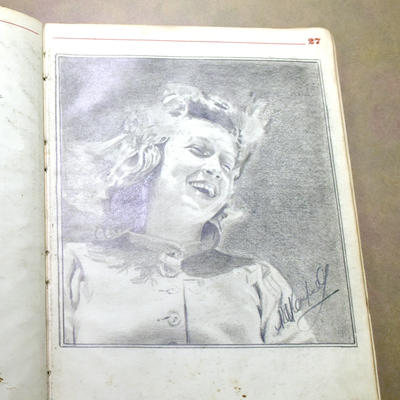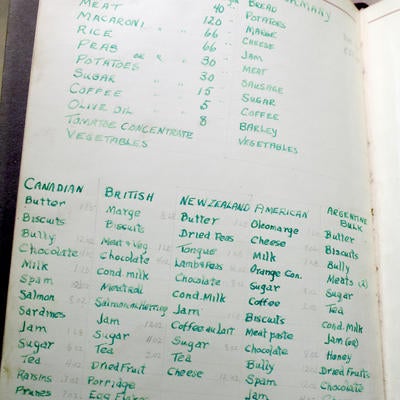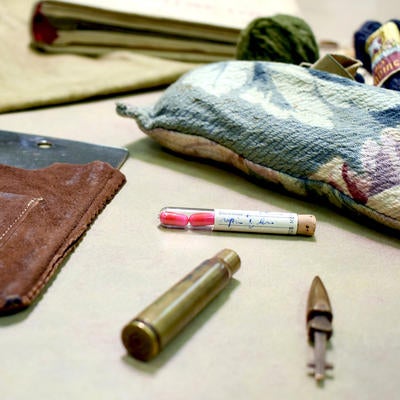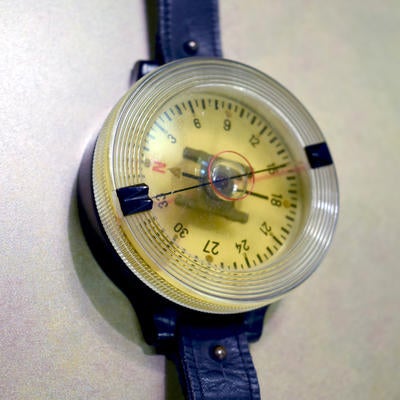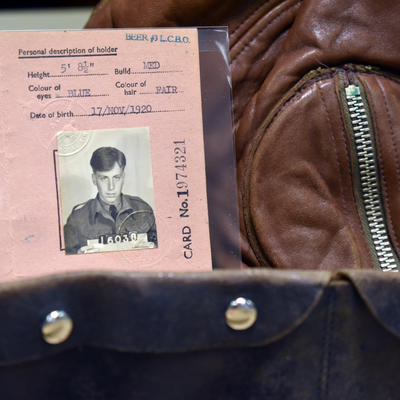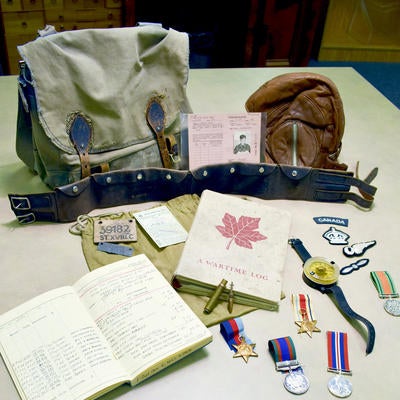News by audience
- Current students (3)
- Future students (2)
- Faculty (3)
- Staff (3)
News archive
University of Waterloo Special Collections & Archives has now made available an unparalleled collection of prisoner of war (POW) artifacts, documents and photographs donated by the family of a local Kitchener man.
Cameron Clare Hill was born in Winnipeg, Manitoba, but moved to a Simeon Street home in Kitchener as a child. In 1940, at 20 years old, he enlisted to serve with the Royal Canadian Air Force Special Reserve during World War Two (WWII).
En route to a raid in Tobruk, Libya, Cameron and his crew were forced to eject from their aircraft after a propeller fell off causing the engine to fail. Cameron, now a Commissioned Officer, and his pilot were separated from the rest of the crew and captured by Axis forces on October 11, 1942.
For the next two and a half years, Cameron was held captive in POW camps in Libya, Italy, Austria, Prussia, Poland, and Germany.
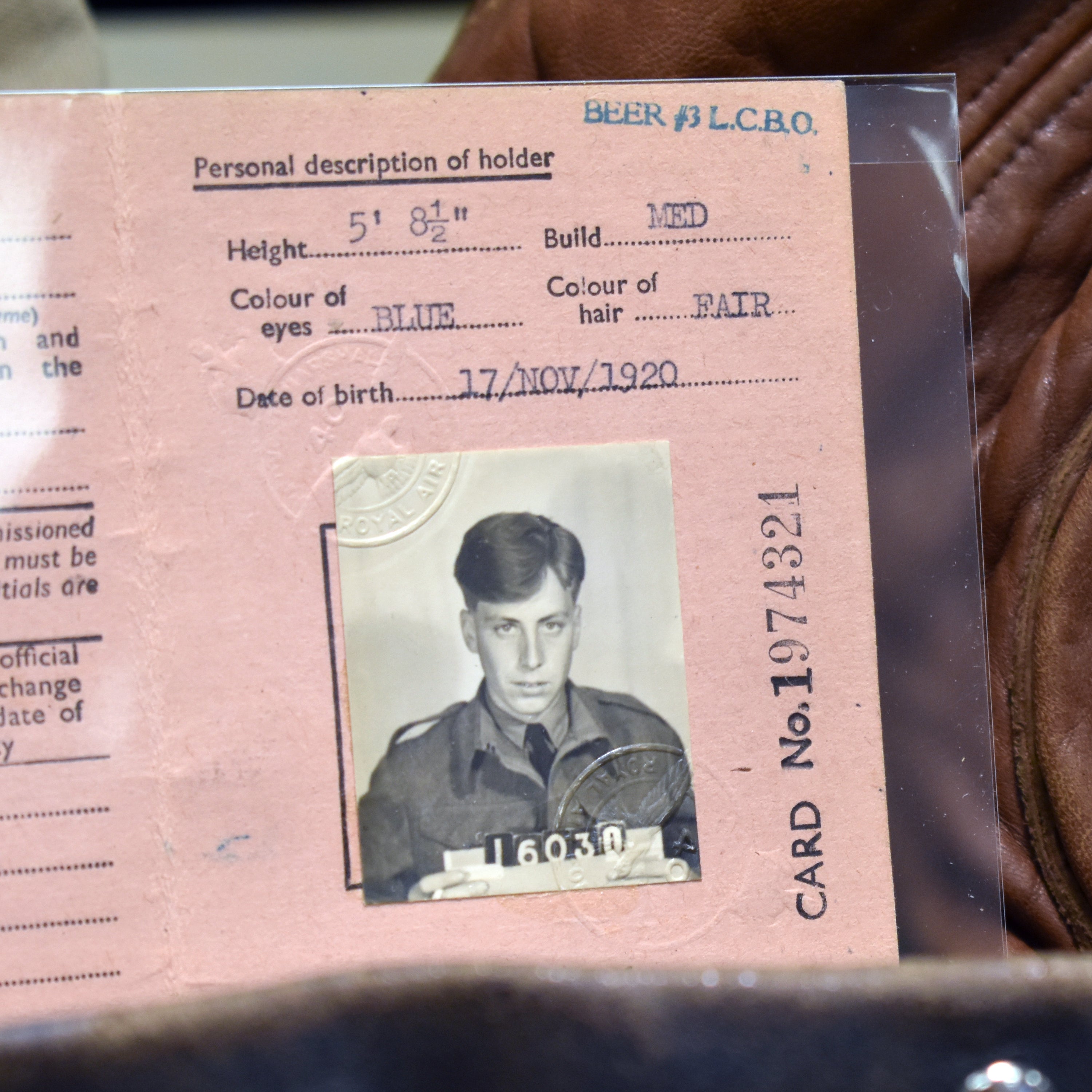 Cameron Hill.
Cameron Hill.
In the early months of 1945, Cameron was forced to march westward across Germany along with many other Allied POWs. Cameron and others were liberated on May 2, 1945 near the town of Kittlitz by a patrol of the British Second Army.
The Cameron Clare Hill fonds contains 153 items created or accumulated by Cameron Hill and his family during WWII and the following years, including photographs and military records related to Cameron’s training, gear, service overseas, his time as a POW, and his liberation and repatriation home to Canada.

A small selection of the 153 items in the Cameron Clare Hill fonds.
Beyond these textual and photographic records, the fonds contains numerous other items that make this a unique and comprehensive collection that illustrates the struggles, resiliency and everyday life of WWII POWs, including his flight helmet, mess kit and haversack, along with Cameron’s medals, pins, badges, and buttons.
Among the most rare items in the collection are maps of POW camps, and wood and metal POW identification tags.
Some of this writer’s favourite items are a Bakelite wrist compass, thought to be pillaged from German troops following Cameron’s liberation, a bullet hand-carved into a crucifix, and a notebook. See the image gallery below for a closer look at these and other items in the Hill collection.
Provided to prisoners of war by the Red Cross to stave off boredom, these notebooks provide the most vivid insight into life in POW camps.
At once beautiful and tragic, Cameron’s notebook is filled with impressive illustrations and notes on the harsh reality of a prisoner’s life. His entries range from satirical poems and cartoons, to comparisons of each country’s POW care packages, and a collection of seemingly insensitive comments contained in letters the troops received from back home.
After having three children and a life of involvement in the Kitchener-Waterloo community, Cameron Hill died on October 31, 1988 in Kitchener, Ontario. His legacy will live on as an invaluable resource for scholars at University of Waterloo and beyond.
These, and many other items pertaining to the World Wars, are available for members of the public to view and touch at Special Collections & Archives.
A talented reproduction of a photograph of Cameron's high school girlfriend. The original photograph is also in the notebook.
A unique example of 'trench art' - a bullet hand-carved into a crucifix, a sewing kit and other items.
A Bakelite wrist compass. A journal entry alludes to the likelihood Cameron removed this from a pile of forfeited German equipment, following his liberation by British troops.

